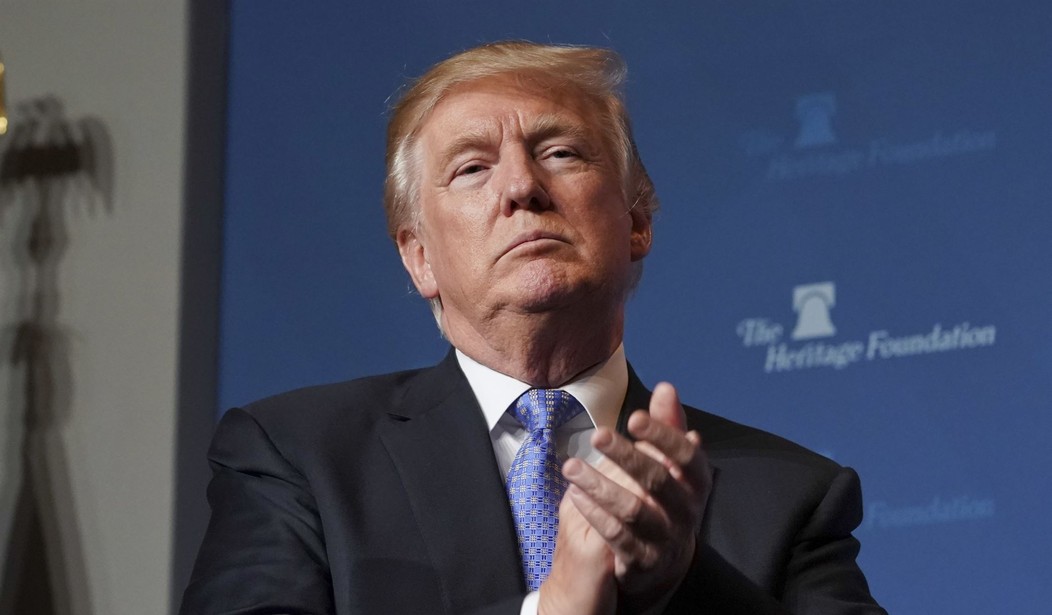Donald Trump is criticized, often justly, for misstatements of facts and failure to understand the details of public policy. But in two of his most recent controversial actions, he has taken stands upholding the rule of law and undoing the lawless behavior of his most recent predecessor.
The question now is whether the author of "The Art of the Deal" -- and congressional Republicans and Democrats -- can maneuver and compromise on these issues in ways that produce sensible public policy.
The first action in question was Trump's Sept. 5 announcement that he would withdraw Barack Obama's Deferred Action for Childhood Arrivals program, which gave immigrants brought to the United States illegally when they were children protection from deportation.
Obama acted despite his initial explanation that the president only has the authority to faithfully execute laws, not to make them. So DACA was dressed up with a fig leaf argument that he was only exercising the kind of discretion prosecutors employ when they choose to bring one case and not another.
A nearly identical argument was rejected by federal courts considering the Deferred Action for Parents of Americans and Lawful Permanent Residents program -- which extended protection to undocumented immigrants with kids who are U.S. citizens -- decisions left in place by the Supreme Court last year. So both DAPA and DACA looked like dead ducks legally anyway.
The second of Trump's actions was his Oct. 12 statement that he would suspend cost-sharing reduction payments to health insurance companies. The Obama administration had been making CSR payments since 2014 even though Obamacare's Section 1401 does not appropriate the money for the payments authorized in Section 1402.
This was blatantly unconstitutional. "No Money shall be drawn from the Treasury, but in Consequence of Appropriations made by Law," states Article 1, Section 9 of the Constitution. The House of Representatives sued, and in May 2016, U.S. District Judge Rosemary Collyer ruled that the billions paid in subsidies were illegal.
Recommended
Administration lawyers made complex, sophisticated arguments that Obama's clearly illegal actions were actually legal. I'm a graduate of Yale Law School; I know how this is done. Many Americans suspect that condescending elite law school graduates are contemptuous of them and their naive belief that words mean what they say. My experience is that those suspicions are well-founded.
So what to do now about DACA recipients ("dreamers") and insurance companies denied their CSRs?
Trump has made clear that he would sign a DACA-like bill together with some 70 other immigration law changes, including mandatory E-Verify for job applicants, creation of the "southern border wall," hiring more immigration judges and replacing extended-family "chain migration" with a skills-based point system.
Democrats are bridling at these demands, and mainstream media quickly declared any deal impossible. But polls show that most are highly popular, and Democrats can't pass legislation by themselves.
Trump's list is obviously an opening move in a negotiation, so the question is whether Democrats are willing to negotiate.
Trump's decision to follow the Constitution on CSRs raises the possibility of short-term hurt for some insurers and higher premiums for non-subsidized people with health insurance. Other proposals he has told his appointees to explore, such as expanding the Obama-imposed three-month limit for short-term insurance policies with less coverage than Obamacare requires, might help.
On Monday, Trump encouraged compromise efforts by Republican Lamar Alexander and Democrat Patty Murray. But when the senators agreed on a plan to appropriate CSR payments, though he originally said nice things about it, he rejected it Tuesday. So did House Speaker Paul Ryan.
Democrats have naturally complained that Republicans, having failed to repeal or replace Obamacare, are trying to wreck it. There's some basis for that, but one could also say it's Democrats' own fault because they passed Obamacare in a form even they knew was flawed.
After it passed, as Bloomberg's Megan McArdle writes, Obama resorted to "dubious executive measures that temporarily shored up the program, but weakened even further the slim foundations of political legitimacy that held it up. And here we are seven years later, watching as one by one, those supports sway or snap."
One lesson: It's hard to make complex one-size-fits-all laws work. Another: If you don't obey the law, even the cleverest lawyers may not be able to keep you out of trouble.

























Join the conversation as a VIP Member